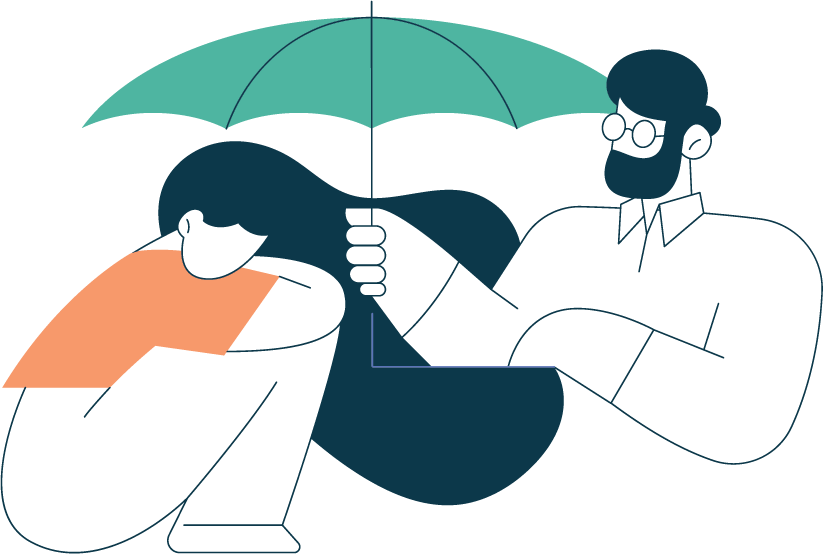Therapy for Depression in NYC
The help to heal and guidance to grow
Struggling to shake off your sadness? Lacking your usual mojo? Or just plain overwhelmed? Dealing with depression can be challenging. But you don’t have to do it alone. We’re here to help.
At COBB, our empathetic therapists offer a variety of evidence-based approaches to treating depression. We tailor our sessions and techniques to fit your unique concerns. If you’re looking for help on your healing journey visit us in our Manhattan or Brooklyn offices, or book an online appointment in New York.

What exactly is depression?
Depression is a chronic condition characterized by persistent feelings of sadness. It’s a loss of interest in things you used to love. A sense of emotional numbness. It can include a decrease in energy, changes in appetite, shifts in sleeping patterns, and difficulty concentrating. We know how significantly these symptoms can affect your quality of life and are here for support.
depression causes & triggers
It’s thought that depression can result from a complex interplay of genetic, biological, and environmental factors. Hormonal changes, past trauma, prolonged stress, and brain chemistry can all be key contributors. Whatever the underlying cause, identifying your personal triggers is crucial. Our therapists are skilled in helping you pinpoint, then address these factors to support your recovery journey.
types of depressions
Depression comes in all different forms. Each type of depression has its own unique characteristics and resulting treatment approaches. From major depressive disorder (MDD), to persistent depressive disorder (PDD), seasonal affective disorder (SAD) to postpartum depression, our team of therapists is equipped to handle each type of depression with the most effective strategies for management and unique treatment plans for recovery.

How Therapy Can Help with Depression
Therapy offers a supportive environment where you can explore the underlying causes of your depression and gain effective coping strategies. Therapy helps you unlock insights into your emotional state, develop useful skills for identifying triggers and managing symptoms, and improve your overall quality of life by fostering a sense of resilience.
Therapy for Depression at COBB
At COBB, our goal is to cultivate a safe and nurturing space where you can work through your depression and take steps toward a more resilient, hopeful future. Our experienced therapists are committed to providing personalized care and using evidence-based techniques to address your specific needs. We’ll equip you with the right tools to mitigate your symptoms and improve your quality of life.
Our Therapeutic Approaches for Depression
Generally, there are a few ways of doing therapy that work well for depression. These include CBT, interpersonal therapy, and mindfulness-based cognitive therapy (MBCT). At COBB, many of our therapists are trained and experienced in these approaches.
cognitive behavioral therapy (CBT)
Are your thoughts running on a loop you just can’t stop? CBT is an evidence-based approach that helps you identify and then challenge negative thought patterns and behaviors that are contributing to your depression. Through CBT, you’ll learn to reframe distorted thinking and develop healthy ways of coping with depression.


mindfulness-based cognitive therapy
Ready to dive into all your feels? MBCT combines cognitive therapy with mindfulness strategies to help you become more aware of your thoughts and feelings. This approach teaches you to observe your thoughts non-judgmentally and develop a healthier relationship with your emotions.
interpersonal therapy (IPT)
Noticing your depression has you feeling lonely and isolated? IPT focuses on improving your relationships and communication skills to alleviate symptoms of depression. By addressing interpersonal issues and enhancing social support, IPT helps you build stronger connections and resolve conflicts that may contribute to your depression.














































